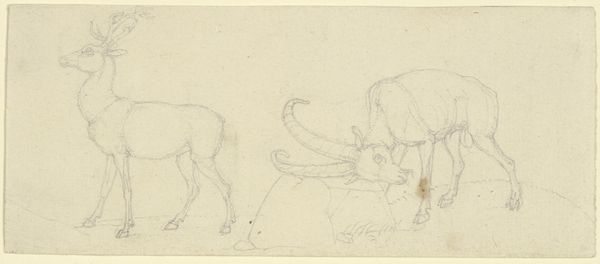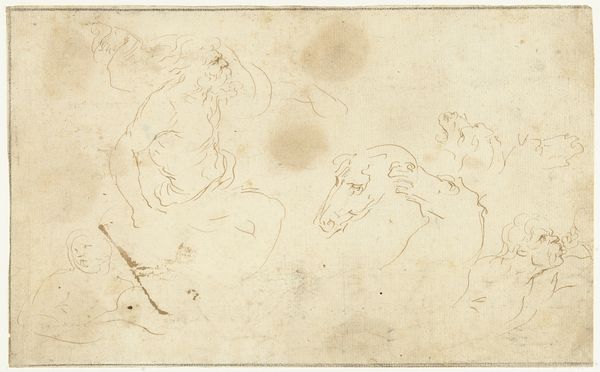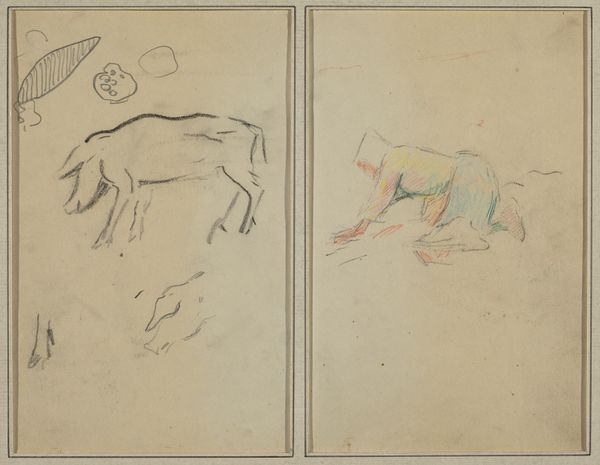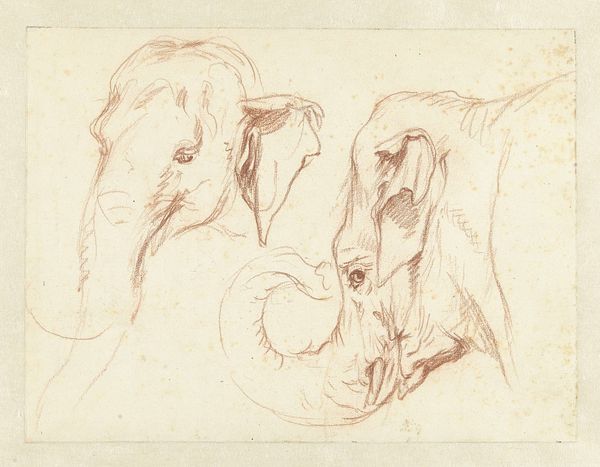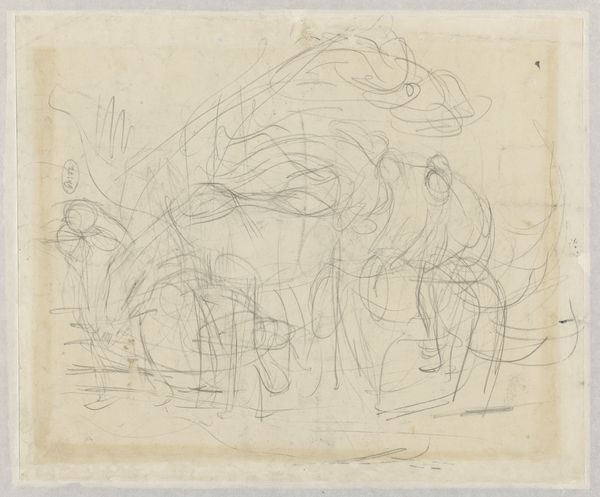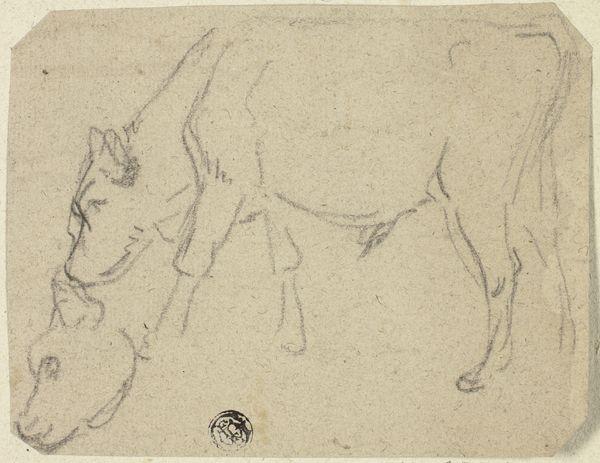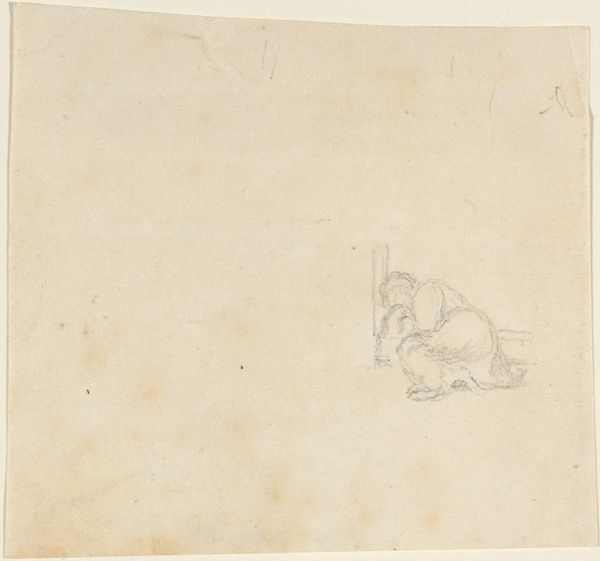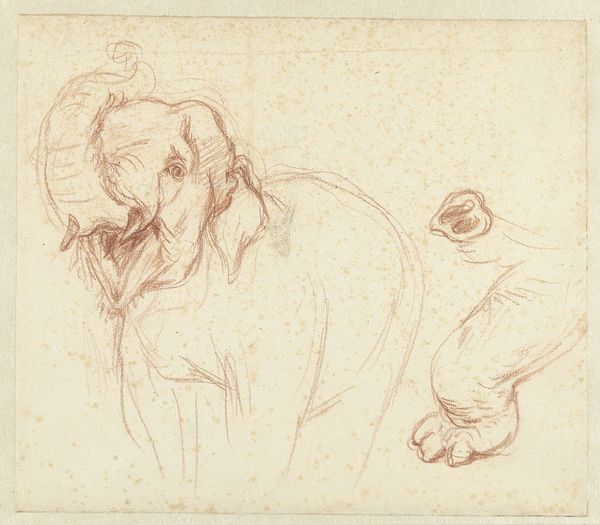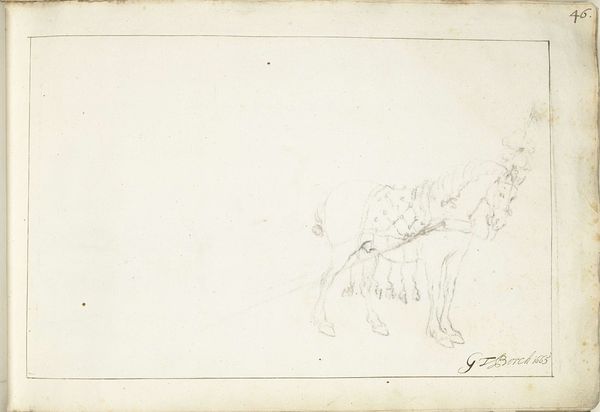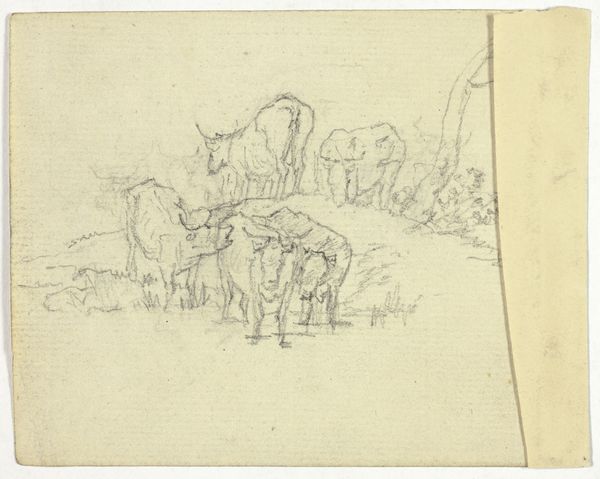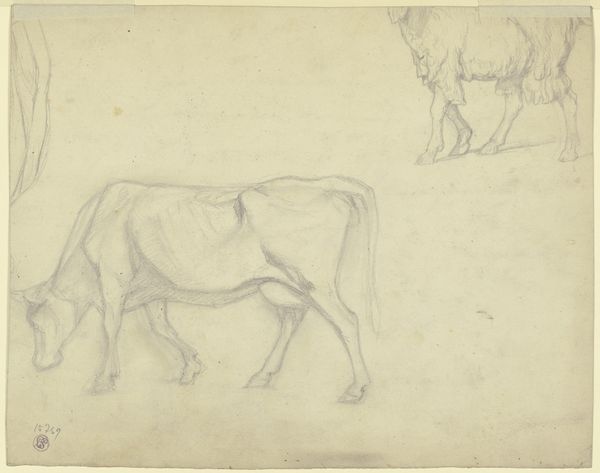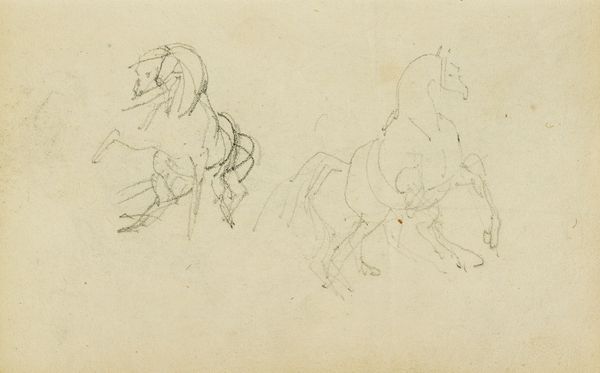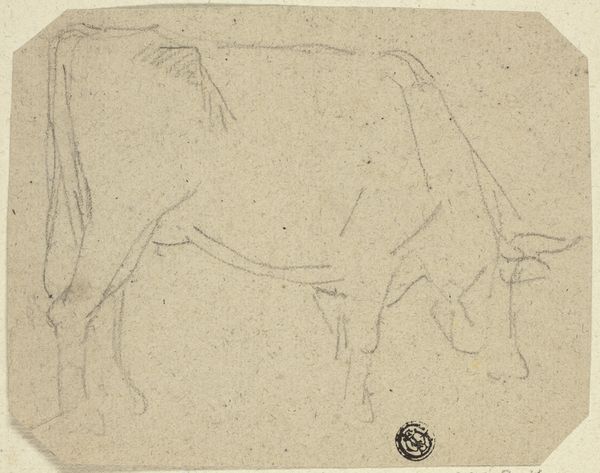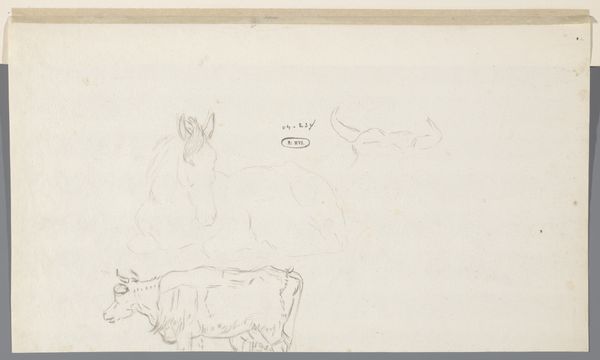
drawing, paper, pencil
#
drawing
#
amateur sketch
#
toned paper
#
light pencil work
#
pencil sketch
#
incomplete sketchy
#
landscape
#
paper
#
personal sketchbook
#
ink drawing experimentation
#
pencil
#
sketchbook drawing
#
pencil work
#
sketchbook art
#
realism
Dimensions: height 170 mm, width 238 mm
Copyright: Rijks Museum: Open Domain
Editor: Here we have Wouter Johannes van Troostwijk’s “Sketch Sheet with some Sketches of Cows,” created in 1805 using pencil on paper. I’m immediately struck by the artist’s light touch and how the sketchy, almost ephemeral lines create a sense of movement. What do you see in this piece, focusing perhaps on its formal elements? Curator: Thank you for that introduction. Viewing this work through a formalist lens, one is immediately drawn to the interplay of line and tone. Notice how Troostwijk uses hatching and cross-hatching to define form, creating subtle variations in light and shadow that give volume to these bovine figures. Observe also the composition, seemingly haphazard yet balanced by the distribution of forms across the toned paper. It's crucial to note the dynamism he coveys with minimal details; observe how, with so little ink, we receive so much. What I see is, through this sketch and other related sketches, Troostwijk searching for the 'essential' cow form and shape through the lenses of lines. Editor: That’s a helpful way of understanding the “balance” within what I initially saw as simple scribbles. What I notice in this case, with so little ink as you mention, I see movement and space to imply my own cow. Is that intended, though? Curator: While intention remains speculative without artist statements, consider the structural elements. The incompleteness, the suggestion of form rather than its precise depiction, allows the viewer to participate actively in the creation of the image. The application of the pencil across the fibers in the page also help the drawing give texture without applying more, drawing you to this form through semiotics. This invites, rather than dictates, engagement. Note the use of negative space and let us ask: is it space that the cows populate or simply texture of their bodies without the use of excessive lines? What we interpret here lies entirely on your ability to connect structure with meaning through form. Editor: This piece highlights how much can be achieved with so few components by just exploring these artistic intentions that rely heavily on structure. I had initially looked past the composition's formal language, instead taking it for granted as a random sketch in which any elements were not deeply connected with its final form and meaning. Now I see differently. Curator: Indeed. Attending to formal nuances illuminates an approach in which apparent casualness belies an astute manipulation of structure. It certainly provides further ways for us to look and enjoy art from periods with different conventions, intentions, and tools.
Comments
No comments
Be the first to comment and join the conversation on the ultimate creative platform.
